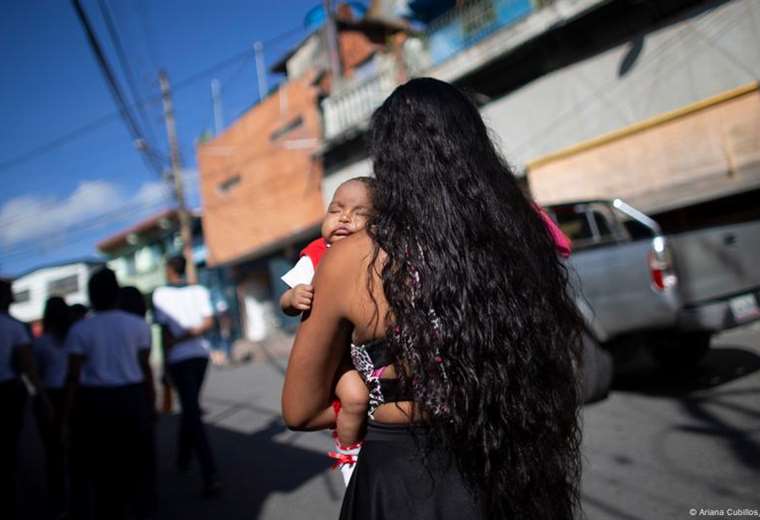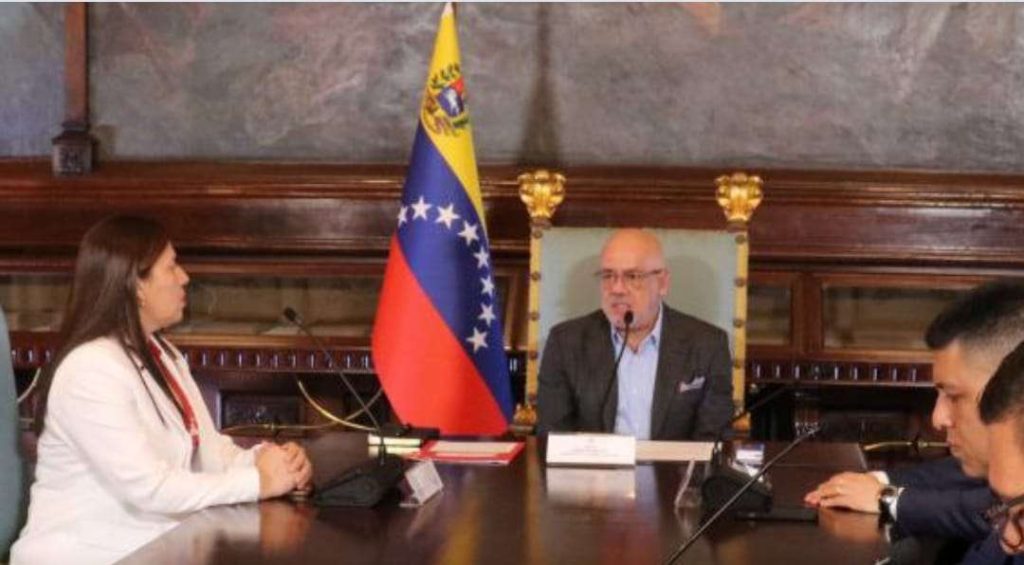November 21, 2024, 7:42 PM
November 21, 2024, 7:42 PM
Las Marías is a rural neighborhood of 112 people in the eastern province of Holguín, in Cuba. Of 63 women who live there, only four were married when they were over 16 years old.
Aurora (63 years old), Vilma (53), Caridad (48), Yanet (35), Yoandra (28) and Dayaneira (17) have been “child wives” in Las Marías and they tell it in the recently shown documentary “She naked”. They all have a low level of education, they depend economically on their partners and their stories are not exclusive to this community, or the island. They are repeated in the region and throughout the world.
“Mamacita since the fourteen“, describes a line of “+57″the new song that famous singers like Karol G, J Balvin and Maluma dedicated to their country, Colombia. The national and international controversy that they unleashed was such that Karol G apologized and published another version last week, where he changed fourteen (14 in English) by eighteen (18).
“I have a lot to learn,” the singer said. But he had no support from the team, who responded with phrases like “if you don’t like the topic, fuck off. Don’t listen to it.”
At the same time, the Colombian Senate approved a law that prohibits child marriage and early unions before the age of 18, something that Cuba also did in 2022. After almost a dozen failed attempts, Colombia adapts to international standards and allows a clear message: that “children’s rights are human rights and the State has unavoidable responsibilities,” Natalia Rueda, professor of Civil Law at the Externado University of Colombia, tells DW.
Once the president sanctions the Colombian law, there will be 15 countries in Latin America and the Caribbean with these prohibitions, all approved in the last decade: “An institutional sign of the model of society that we want to build,” assesses Karen García, statistician of the Gender Affairs Division of the Economic Commission for Latin America and the Caribbean (ECLAC). And it refers to a society with gender equality.
Naturalized myths, poverty and inequality
Although a part of society assumes these relationships as “consensual,” in reality “they constitute an explicit power relationship, as well as an alleged crime,” depending on the legislation on the age of consent in each country, Ángela Anzola told DW. executive president of Plan International Colombia, one of the NGOs that promoted the bill. In Colombia, for example, it would be appropriate to debate this age, set at 14 years, says jurist Natalia Rueda.
Anzola cites harmful myths and taboos, which are confused with popular wisdom and which reproduce violent discourses throughout the region: “the first menstruation is considered the beginning of the sexual life of girls”, “you should not talk about sexuality with girls because it encourages the beginning of sexual life”, “it is better for men to have relationships with ‘virgin’ women”, “girls look for men” or “love has no age”.
As a society, “we must question adults for these types of relationships and not blame the girls,” warns the Plan International expert. It refers to them in particular, because they are the most affected among minors in the region and the world, as confirmed by the figures.
And, more than marriages, de facto unions represent “most of the problem,” notes the ECLAC statistics. The United Nations Children’s Fund (UNICEF) warns that the region could become the second in the world with the most child marriages and unions in 2030, after sub-Saharan Africa. With both phenomena added, the proportion of women between 20 and 24 years old who were married or had a stable union before turning 18 remains stagnant between 22 and 21 percent in the last 20 years in Latin America and the Caribbean.
Among the countries with the highest percentages, even above 30 percent, are Nicaragua, Honduras or the Dominican Republic. Looked at in detail, the phenomenon has been significantly reduced in higher-income households, but not in the poorest. In Colombia, for example, this figure rose to 43 percent among women with the lowest incomes in 2015, while it dropped to 4 percent among those with the highest incomes. A reality that is repeated in other countries in the region, confirms the ECLAC expert.
Much to do
Laws are definitely not enough. There is a long way to go. And the challenge is to achieve a cultural change, the experts agree. In Colombia, after the presidential sanction, it will be time to implement the law. For Anzola, it will then be vital to strengthen public policy on childhood and adolescence. This would include, for example, the creation of a National Life Projects Program to raise awareness about the causes and effects of early unions, as well as the prevention of other risks and violence such as sexual abuse and child pregnancies.
“Bold measures” with a gender focus are required, which guarantee access to universal quality education, including comprehensive sexual education. As well as access to specialized health and protection services, including sexual violence prevention and care services, or friendly spaces for adolescents, summarizes Karen García, from ECLAC.
For Ángela Anzola, from Plan International, these educational offers should be aimed at girls, boys, adolescents, young people and their families. As well as promoting spaces for dialogue, awareness and training against the inequalities that girls experience and that naturalize relationships between adult men and minors. Health services, for their part, would have to be “sensitive to gender and age”, taking the best interests of children as a reference.
Community networks and human rights approach
In addition, it is necessary to strengthen policies to eliminate poverty, one of the causes that lead to early unions, García adds. And “break the statistical silence”, so that countries update their data and information flows towards the design of actions and awareness, he says.
In the opinion of jurist Natalia Rueda, the human rights approach is essential, stopping the assumption that the autonomy of the family must simply be respected. In this sense, Ángela Anzola also insists, the creation and strengthening of community protection networks for the prevention and elimination of child marriages and early unions should be promoted, linking families, local leaders, civil society organizations, educational institutions, and local and national government entities.
Only in this way, the statistics and testimonies of the inhabitants of Las Marías, in eastern Cuba, the next songs of tribute to Colombia and the lives of many Latin American girls and adolescents, could be different in the coming decades.















